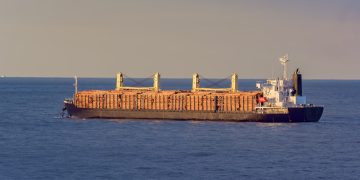According to David Hammond, CEO, Human Rights at Sea, “2023 is rapidly shaping to be another challenging, if not deadly, year for human rights defenders alongside the necessary drive for greater access to justice and associated effective remedies.”
According to Mr. Hammond, abuses can be variously evidenced with ongoing maritime slavery, human trafficking, loss of life of migrants and refugees, IUU fishing and consequential criminality, mining of waters in the Black Sea, detention of seafarers and sinking of vessels during international armed conflict.
There are record levels of global abandonment of seafarers, consistent loss of coastal communities’ livelihoods, increasing child labour and forced labour conditions for workers – all being perpetuated at sea on a daily basis
Regarding 2022, Human Rights at Sea’s CEO notes that it was “undoubtedly a bloody year for protecting rights around the globe, both figuratively and factually speaking. The number of examples of egregious abuses across a multitude of states cannot be fully covered in this piece.”
However, on the positive side, the issue and narrative around ‘human rights at sea’ is gaining international traction.
The concept of a ‘blue turn’, of the ‘blue economy’ and of a growing ‘maritime human rights ecosystem’ is developing with political and policy stakeholders becoming savvier and better educated through academic and civil society activities
Nevertheless, Mr. Hammond adds that while there are known gaps in human rights protections in law and policy, the real factor in achieving positive change is the sustained and effective enforcement of existing legal instruments to underpin an increased deterrent effect against abusers.
There is much to do and little time, especially when one looks at the juxtaposition between climate and environmental challenges and their impacts on humanity
In order to take a step to tackle the issue, Mr. Hammond mentions the need to identify champion States and influential entities and harness their political energy and resources.
With enough people and engaged States, we can achieve greater levels of justice.
he concludes.

































































